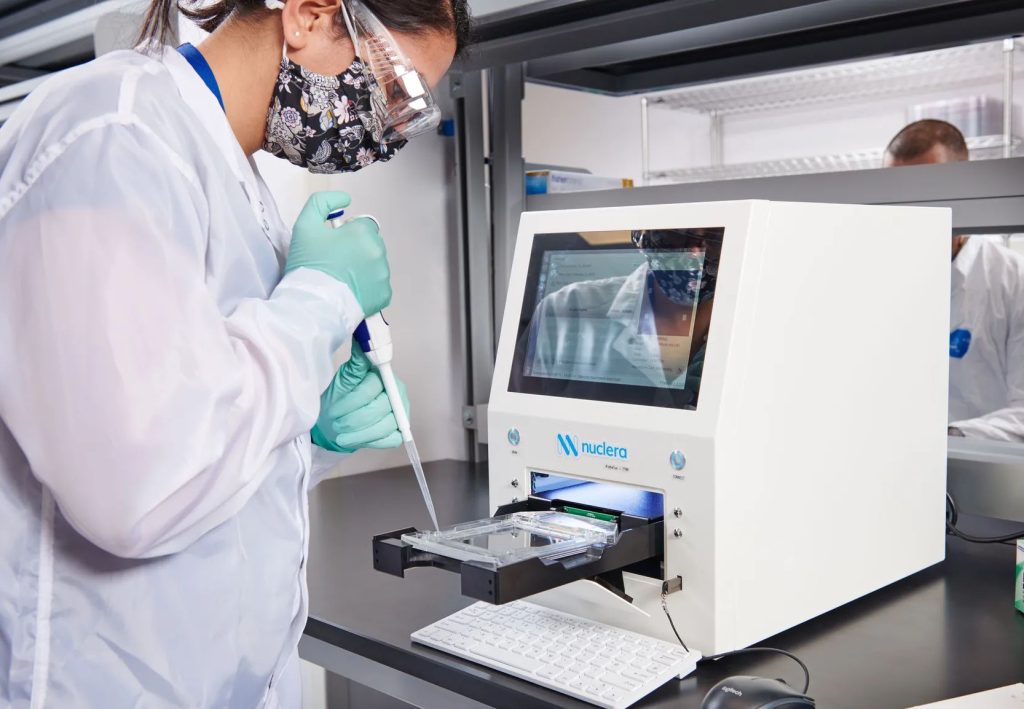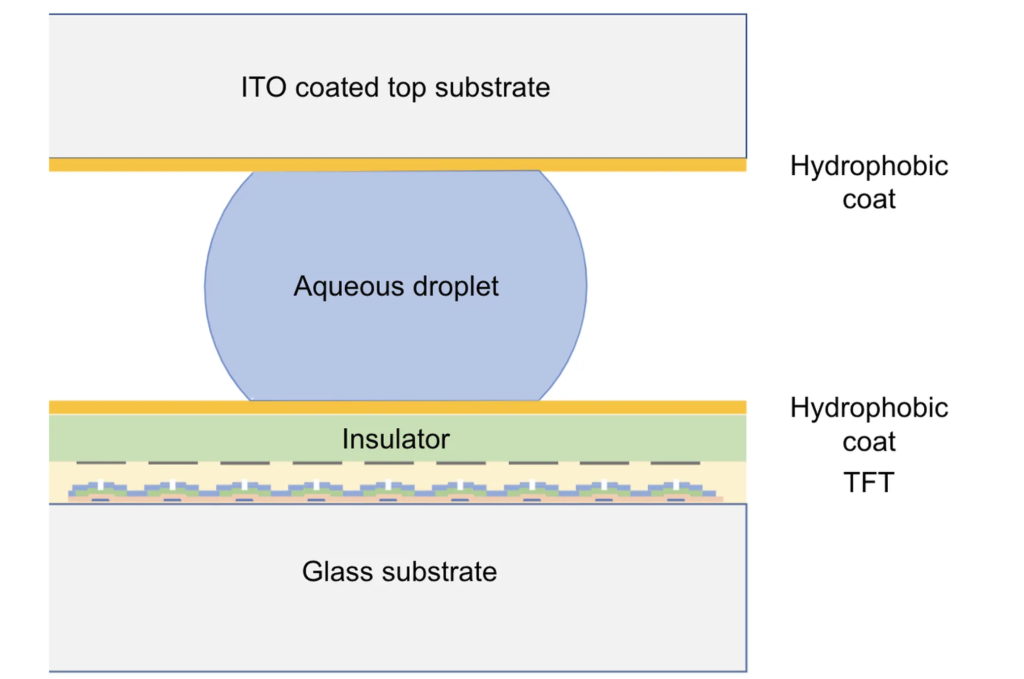Biotechnology start-up Nuclera has attracted a further $15.5 million in Series B funding, taking its total raised in the round up to $58 million.
Much like the initial $42.5 million it raised earlier this year, Nuclera plans to use this additional capital to fund the continued development of its ‘eProtein’ 3D bioprinter. It’s thought that once ready, the technology, which enables scientists to more rapidly create the samples needed to study protein-to-protein interactions (PPIs), could help accelerate and democratize the drug discovery process.
“We’re delighted by the continued support of our existing investors and to have the opportunity to bring on several new strategic partners with our recent Series B raise,” said Nuclera CEO and Co-founder Michael Chen. “With their support, we are quickly scaling all functions from R&D through to our commercial team.”
“I’m thrilled to advance our mission of making proteins accessible and continue on our journey to deliver our game-changing technology to the market.”

Nuclera’s protein 3D bioprinting process
Founded by three scientists studying at the University of Cambridge in 2013, Nuclera is a biotechnology specialist that’s dedicated to driving the accessibility of cell-based experimentation. Primarily, the firm has sought to achieve this via the development of the eProtein, a bioprinter designed to help scientists accelerate the rate at which they identify proteins, in mammalian, plant, and bacterial cells.
The system is powered by Nuclera’s ‘eDrop’ digital microfluidic technology, a lab-on-a-chip process, in which the TFT electronics used to create consumer displays are deployed to screen DNA droplets for protein expression instead.
Based on this data, the machine can then use software-controlled electronic signals to move, mix and split such droplets, in a way that enables the creation of purified nanoliter-scale proteins. In doing so, Nuclera says its technology accelerates what is often a “time-consuming and complex process” that can take months or even years to accomplish, into one that’s achievable within just 24 hours.
The company has also developed its own ‘eDNA synthesis ink.’ This enzyme effectively turns monomer building blocks into DNA strands, theoretically enabling eProtein users to rapidly create a desired sequence for testing, on-demand at their desk. According to Nuclera, the biomaterial therefore connects the workflows behind DNA, RNA and protein synthesis, which “are currently fragmented” and slow.

Funding the eProtein’s market debut
Nuclera’s latest $15.5 million investment has been provided by biotech entrepreneur Jonathan Milner, as well as VC firm Verve Ventures. The investors’ move sees them join the firm’s growing list of backers, which includes the likes of M&G, Amadeus Capital Partners, and RT Partners, and takes its total raised to $83.3 million.
Using its newly-raised funding, Nuclera says that it plans to “further its mission of making biology accessible.” Specifically, the company intends to achieve this by pouring more resources into the eProtein’s launch, something it’s preparing for by working with key customers to gather intelligence, and engaging in alpha testing.
In order to accelerate its pre-commercialization strategy, Nuclera has also announced plans to hire new personnel across its key functions. Once ready, the company believes its system will “allow researchers to accelerate discoveries and treatments by delivering on-demand, desktop access” to 3D bioprinting, a development Milner says could be revolutionary.
“The ability to screen multiple protein expression profiles and print purified proteins in 24 hours, will revolutionize laboratory workflows and make a demonstrable impact in terms of time to publish in academia and drug discovery timelines,” explains Milner. “The days of screening a single protein expression profile at a time are coming to an end with this technology.”
3D bioprinting’s investor appeal
While 3D bioprinting largely remains at the lab-testing stage, its potential as a means of producing transplantable tissues continues to attract significant investor interest. In May 2022, for example, Regemat 3D raised over €500,000 in equity crowdfunding, capital it’s using to ramp up the development of its proprietary bioprinting technology.
Earlier this year, Inventia Life Science raised $25 million as well, providing it with the cash needed to expedite the roll-out of its RASTRUM 3D bioprinter. The firm sees particular potential for its system in the US biotech sector, where it believes it can address a tissue R&D and drug discovery market worth an estimated $40 billion.
BIOLIFE4D, meanwhile, has sought to raise funding in a different way, by launching a $17.5 million IPO in the US. Using any cash raised, the firm plans to expand its R&D operations, as a means of commercializing the technology behind its mini 3D bioprinted heart, which could be used as a basis for creating human tissue grafts.
To stay up to date with the latest 3D printing news, don’t forget to subscribe to the 3D Printing Industry newsletter or follow us on Twitter, or liking our page on Facebook.
For a deeper dive into additive manufacturing, you can now subscribe to our Youtube channel, featuring discussion, debriefs, and shots of 3D printing in-action.
Are you looking for a job in the additive manufacturing industry? Visit 3D Printing Jobs for a selection of roles in the industry.
Featured image shows an engineer using a Nuclera system. Photo via Nuclera.



